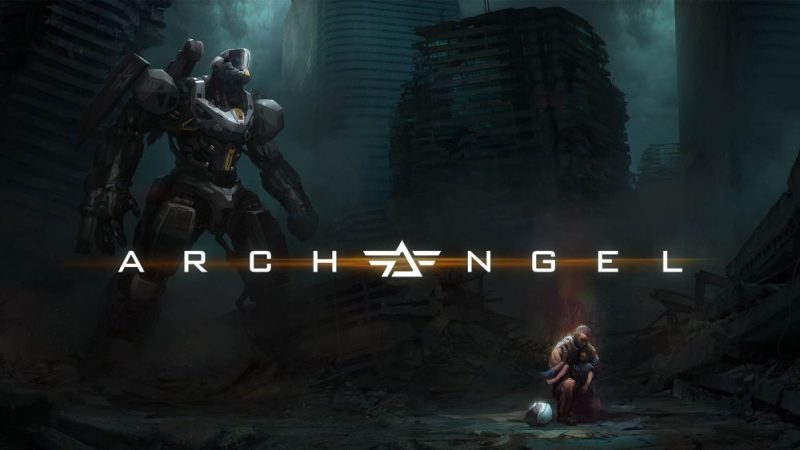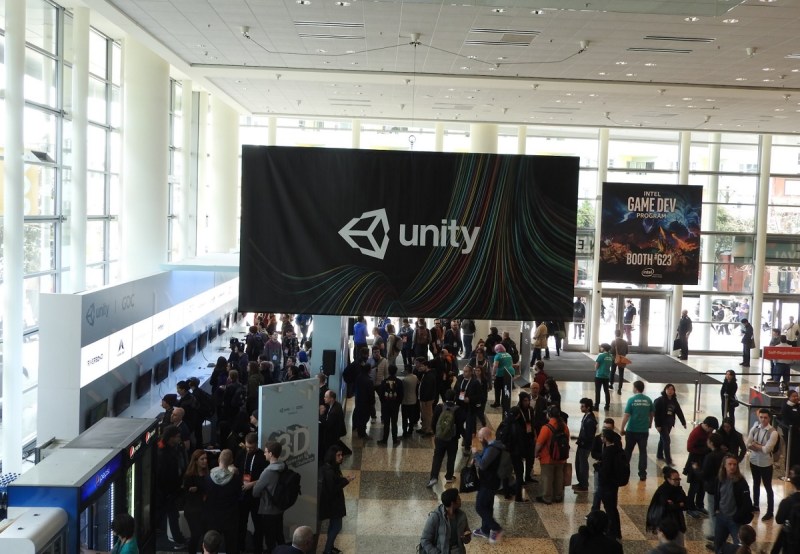Hollywood studio Skydance Media, maker of the Mission Impossible and Terminator movies, has hired Uncharted co-creator Amy Hennig and former Electronic Arts executive Julian Beak to start a new game studio in the San Francisco Bay Area.
The move means that Skydance, run by Larry Ellison’s son David Ellison, will give Hennig and Beak the leeway to create a new division within Skydance and form a new game studio that will hire lots of game developers in offices in the Bay Area and at Skydance Media’s headquarters in Santa Monica, California.
In an interview with GamesBeat, Hennig said the new company will target gamers and non-gamers alike, on both traditional and emerging streaming platforms with new story-focused experiences — crafted as an interactive series — and they will employ state-of-the-art computer graphics to provide the visual fidelity of television and film, but with an active, lean-in experience that puts the audience in the driver’s seat. In other words, it’s a lot like the kind of games Hennig has done in the past, like the Uncharted series (starring the swashbuckling Nathan Drake), which was a kind of funny ode in video game form to Raiders of the Lost Ark.
A game industry veteran with more than 30 years of experience, Hennig was recently honored with the Lifetime Achievement Award at 2019’s Game Developers Choice Awards and was presented with the 2016 BAFTA Special Award in recognition of her outstanding contribution to the video game industry. I saw her pick up a big award in Spain at Gamelab.
June 5th: The AI Audit in NYC
Join us next week in NYC to engage with top executive leaders, delving into strategies for auditing AI models to ensure fairness, optimal performance, and ethical compliance across diverse organizations. Secure your attendance for this exclusive invite-only event.
“The interactive media landscape is continually changing and Amy and Julian are creative and visionary leaders of this evolution,” said David Ellison, CEO of Skydance Media, in a statement. “Together, we will create within this new sphere the same type of event-level entertainment experiences that Skydance is known for in features and television.”

Above: Archangel was Skydance Interactive’s debut VR game.
Throughout her career in the interactive entertainment industry, Hennig has worked as an artist, animator, game designer, and most notably in the last two decades, an acclaimed writer and director. Most recently, Hennig served as a senior creative director at Electronic Arts, where she oversaw the development of Visceral Games’ Star Wars single-player title. EA canceled that game and shut down Visceral in October 2017, and Hennig decided to leave EA as a result.
This followed a decade at Naughty Dog as the creative director and lead writer of Sony Computer Entertainment’s award-winning Uncharted game series. Prior to joining Naughty Dog, she served as the Writer and Director of the groundbreaking Soul Reaver / Legacy of Kain series over eight years at Crystal Dynamics.
She began her career at Electronic Arts, where she contributed to early 16-bit titles, including Desert Strike and Michael Jordan: Chaos in the Windy City. She has been called one of the most influential women in the gaming industry. Her work on the Uncharted series has earned countless industry awards, including a BAFTA for Story and two consecutive WGA Videogame Writing Awards.
Hennig holds a bachelor’s degree with honors from the University of California, Berkeley. (I attended Cal at the same time!) And she attended the School of Cinema at San Francisco State University.
“After Visceral closed, we both looked at the industry. We said we were going to take a little time,” Hennig said. “Looking at the landscape, it felt like we were in an inflection point. And not just the game industry, but the center of the entertainment industry as a whole. And so we just were fortunate enough to have the opportunity to do a survey of the industry and talk to people and engage with people in the industry, as well as in the traditional entertainment industry. Just to see where people thought the wind was blowing. Who were we going to partner with?”
Julian Beak is a 30 year veteran of the interactive entertainment industry. Most recently he worked in production at Electronics Arts on large franchises including Battlefield, Need for Speed and Star Wars. Before that he worked at United Front Games, Radical Entertainment and Disney Interactive on many properties including LittleBigPlanet, Scarface, Crime Scene Investigation, Winnie the Pooh, Mickey Mouse, The Lion King, and Toy Story. He has worked as an artist, designer, software engineer, producer, and executive on over 30 productions.
Hennig did a little consulting with game companies.
At Skydance Media, Hennig said she felt she had found “kindred spirits.” She said, “The coolest thing too with David is he is a major figure in the entertainment industry, but he is a huge gamer and not a casual one since he was a kid. He’s a serious gamer so he knows this business. And so to have somebody who straddles those worlds and has a vision for both, linear and the interactive, we felt we were home.”
Why Skydance was the right fit

Above: Tom Cruise as Ethan Hunt in Mission Impossible: Fallout.
Hennig and Beak spend two years looking around.
“We had some conversations with different people. Maybe they would have some entertainment industry cred. Maybe they had some game cred. Or they were interested in dabbling in interactive,” she said. “If you look around, like almost every entertainment company in Hollywood has some sort of interactive division, but they vary in terms of how serious they are about it, or how much they even understand it. But the idea of actually finding a company and a CEO like and David Ellison, who not only has the entertainment cred. For me with Skydance, it feels like a shared DNA. If you look at the kind of movies that Skydance produces, I think some of that blockbuster swashbuckling adventure is something that’s in their DNA. I felt very at home, very comfortable with that. David has the game cred. When we had these conversations about what our ambitions were, some would wish us luck. We were almost too ambitious for them.”
She added, “They wanted us to start smaller because what we’re describing is more focused on some of these massive, triple-A blockbusters. But it ain’t going to be cheap, right, because you think about some of the things that are important to this audience. And, and one of them is fidelity, you know, visual fidelity, character fidelity, performance. That doesn’t come cheap.”
And she said, “To find partners in Skydance and David who not only have the right focus and straddle those worlds between entertainment and interactive, but also the resources to actually create this and to see the same moon shots. And we see they had the same ambitions and that pushes us to be more ambitious. That just didn’t happen in those two years when we talked to other people.”
David Ellison founded Skydance in 2010 to create a broad media company operating film, television, interactive and animation divisions. Recent feature films include Mission: Impossible: Fallout, Annihilation, Gemini Man, and Terminator: Dark Fate. The latter turned out to be one of the box office duds of the year, despite bringing back stars Linda Hamilton and Arnold Schwarzenegger.
In 2016, Skydance Interactive launched in 2016 to create and publish original and IP-based virtual reality video games; its library includes the mech-shooter game Archangel: Hellfire and the upcoming title The Walking Dead: Saints and Sinners. In 2017, Skydance formed an animation division to develop and produce a slate of high-end feature films and television series. The first slated movie is Luck.
Storytelling in games that aren’t too huge

Above: Amy Hennig has been making games for nearly three decades.
Hennig said that the exact titles haven’t been set yet. But she will likely be in a game director or creative director role, an “interactive showrunner,” while Beak will likely be in an executive producer role.
She is pretty clear about what she likes.
“I’ve been in the game industry for 30 years now. I’ve seen so many different evolutions and revolutions of creative content. And fundamentally, I came to it as a storyteller,” Hennig said. “I was potentially a filmmaker. When I was going to school, I wanted to be a writer. And so I found my I found my creative home in games. But it’s been harder recently. To want to tell for the finite author crafted stories, it’s something that you see more in a linear medium like TV and film. To marry that with interactive, that’s what I’ve been doing in my, in my career.”
She added, “But now as we looked at the game industry, and there’s so much pressure to create these monolith games that are so huge and more focused on live services and open the world aspects. Which are great, right? But my sweet spot is authored narrative. And so, what I was looking at, as I was doing my tour of industry, was — everything I heard from my gamer friends — that we want that content. That is what we are missing, the kind of shorter form, focused, narrative interactive content.”
The opportunity with game streaming and subscription models

Above: Google’s Stadia game controller.
With live operations, gamers want a game that never ends. That isn’t good for a story, which has to have an ending. But with game streaming and subscriptions, you don’t have to make a game that never ends. You can make a story that is divided into chapters, so people can consume it a little at a time. But you can also make a game that they can binge on, or something “binge-able,” she said.
“The industry started bubbling about streaming and game streaming. And real-time streaming. All of these are sort of the same thing. The idea that as, as you know, platforms emerge like Google Stadia and Microsoft xCloud and so many others. And as we see 5G on the horizon, there’s going to be a massive hunger for real-time interactive content that will be just as accessible to us on our devices,” she said. “Just as frictionlessly as video streaming is now. And then I sort of looked at the sort of intersection of experience that I think is going to be required to really take the opportunity of this new media landscape. That is understanding story and character really well. And that’s something that, you know, we could do better in-game sometimes. But you know, we’ve got better but over the years, but we’ve taken a lot of visual cues from film.”
Video games are coming together as an art form, the same way that film and TV did. And it’s at the confluence of several things that modern audiences want, Hennig said.
“The other aspect, of course, is real-time production and the knowledge about how to do real-time CG (computer-generated animation). How to use performance capture, how to do virtual production. And then the other sphere is interactive gameplay,” she said. “It’s where those three spheres intersect. That’s the sweet spot. I think understanding the story, real-time, and interactive makes us really well poised to make groundbreaking content in this landscape, which will eventually be dominated by streaming.
Hiring to do, but not too much hiring

Above: GDC 2018
Hennig said she has a lot of hiring to do.
“We have had to lay low, but now we are putting out the Bat Signal.”
But don’t expect her to hire as many people as Naughty Dog has or Rockstar Games has.
“Fundamentally, what we’re hearing a lot is that they miss the focused, narrative interactive content that we used to have,” she said. “This isn’t a knock on existing games because we’re getting better and better at what we do. But we’re also getting so much more ambitious in the scope of what we do that it’s almost getting unsustainable.”
Hennig believes they will create a “very small tight focus development studio working very closely with specialized channel partners and distributed development because we think that’s the right way to go at this point.”

